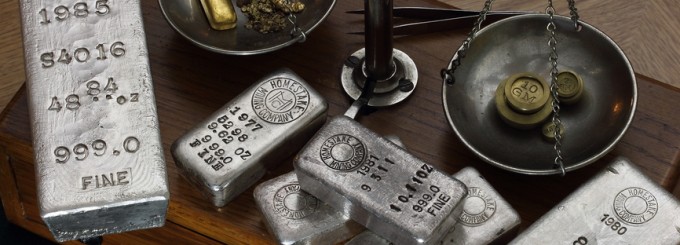Will Selling Silver Bullion Have Income Tax Consequences?

In case you’re usually investing in silver bullion and other precious metals for a profit, you’re probably waiting for the right time to sell. Frankly, if you watch the market and play your cards right, then you’ll end up with a nice profit after the transaction. Unfortunately, few traders realize that once the deal is over, the IRS will be right behind them asking for a share of the profit. On a side note, if you end up short following a bad transaction, at least you can deduct the loss from your income taxes.
Learn whether you gained or lost money
Before you can establish the income tax you owe for selling silver bullion, first you need to figure out how much you gained following the deal. To be more precise, you will have to calculate the cost basis, meaning the total amount you spent for the acquisition of the bullion. In case of silver, the cost basis implies calculating the dealer’s fee and storage fees as well as the potential discounts for the purchase or sale of the silver.
Once you learn the cost basis, you can subtract the amount you gained by selling the silver bullion and, if the resulting number is positive, it means you made a capital gain. Obviously, if the number is negative it means you lost money in the transaction. On a side note, in the event that you’ve inherited the bullion, then the silver’s fair market value will be used instead of the cost basis.
Find out how much income tax you owe
To determine the income tax consequences, first you need to account for the timeframe during which you owned the silver. In general, if you sold the silver bullion one year or less from the day – look at the receipt for the exact date – you bought it, then the IRS will consider it a short-time gain. Therefore, the financial gain resulting from the transaction will be taxed as regular income, meaning you are due for a tax income ranging from 0 to 35%.
On the other hand, if you owned the silver bullion for more than one year, then the sale will be interpreted as a long-term gain. In this case, the IRS will ask for a share based on your current income tax bracket. For instance, if your regular bracket is 28% or 33%, then your income tax consequences will be 28% or 33% from the transaction.
The exception
It is important to note that if you use a tax-deferred account or even the IRA to invest in silver, then you won’t have any tax income consequences after completing the deal. The reason for this is that the IRAs are usually exempt from taxes until they are withdrawn.
However, keep in mind that this rule doesn’t apply to all available silver bullion on the market. In fact, the IRS only allows certain high-quality silver coins and bars – like the American Eagle silver coin, for instance – on the no-income tax list. Failing to follow the rules implemented by the IRS will be considered an early distribution for which you will not only pay the average income tax, but also a penalty fee.


